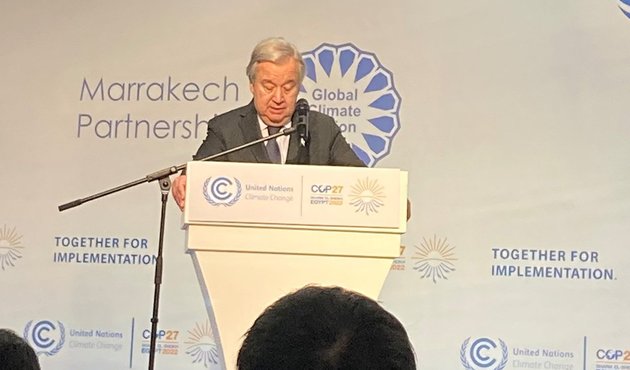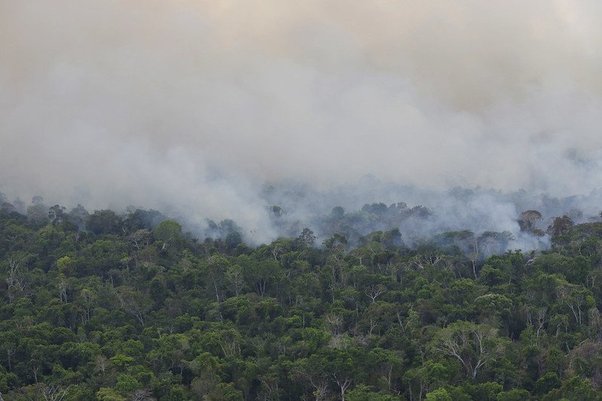Over the past few years, it has become more and more fashionable for firms to sign up to net zero voluntary initiatives. Currently over 80% of the global economy is covered by net-zero pledges.
Environmental campaigners – including those of us who focus on forests – have learnt to take these promises with a bucket full of salt.
As the UN Secretary General put it at COP27 on Tuesday, the current net zero system, if you can call it that, amounts to little more than "rank deception". It has loopholes wide enough to "drive a diesel truck through".
Without clear standards and someone monitoring progress towards voluntary commitments, promises are meaningless.
In most cases, companies can simply continue business as usual, polluting and deforesting to their hearts content, and then pay a supplier of so-called "carbon offsets" to notionally wash away their sins by planting the odd tree here and there – sometimes even on land stolen from local communities.
Net result? Company feels good. Customer reassured. Human rights ignored. Planet continues to burn.
So, it was welcome to hear the UN Secretary General call out greenwashing for what it is on Tuesday, and launch a new report with concrete standards for net zero initiatives.
Businesses, financial institutions, cities and regions who wish to use the label "net zero" must be aligned with the scientific evidence, he said.
Companies cannot claim to be net zero while continuing to build or invest in new fossil fuel supply or deforestation.
While aiming to raise the bar within voluntary schemes, the report’s ultimate conclusion is that "voluntary commitments can only take us so far."
Regulations are urgently needed to turn promises into reality – starting with the largest emitters.
It is unclear what this means for the world’s biggest club of so-called net zero financiers, the Glasgow Financial Alliance for Net Zero (GFANZ), whose members have pledged to meet net zero emissions by 2050.
GFANZ recently chose to split from the UN-backed campaign called the Race to Zero, after that body threatened to kick out non-performers.
Now we know why. This week, Global Witness exposed the pitiful progress GFANZ members are making on deforestation financing. Some members even increased their exposure to businesses implicated in deforestation in the year since COP26.
Many of the same names are also still big investors in fossil fuels.
The UN’s new report says financial institutions should make it a policy not to invest in or finance businesses linked to deforestation, setting a 2025 deadline for deforestation-free portfolios.
Guterres has given the managers of "net zero" initiatives one year to align with the new report, or face dropping the ‘net zero’ term altogether.
Will GFANZ be just a lobbying organisation called the "Glasgow Financial Alliance" by next year? The best way to save the embattled crew of financiers is to put their promises in law.
Watch this space.



